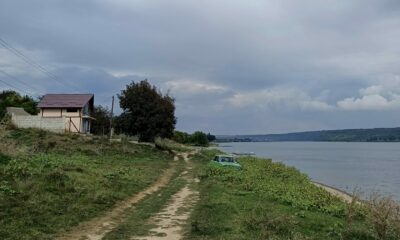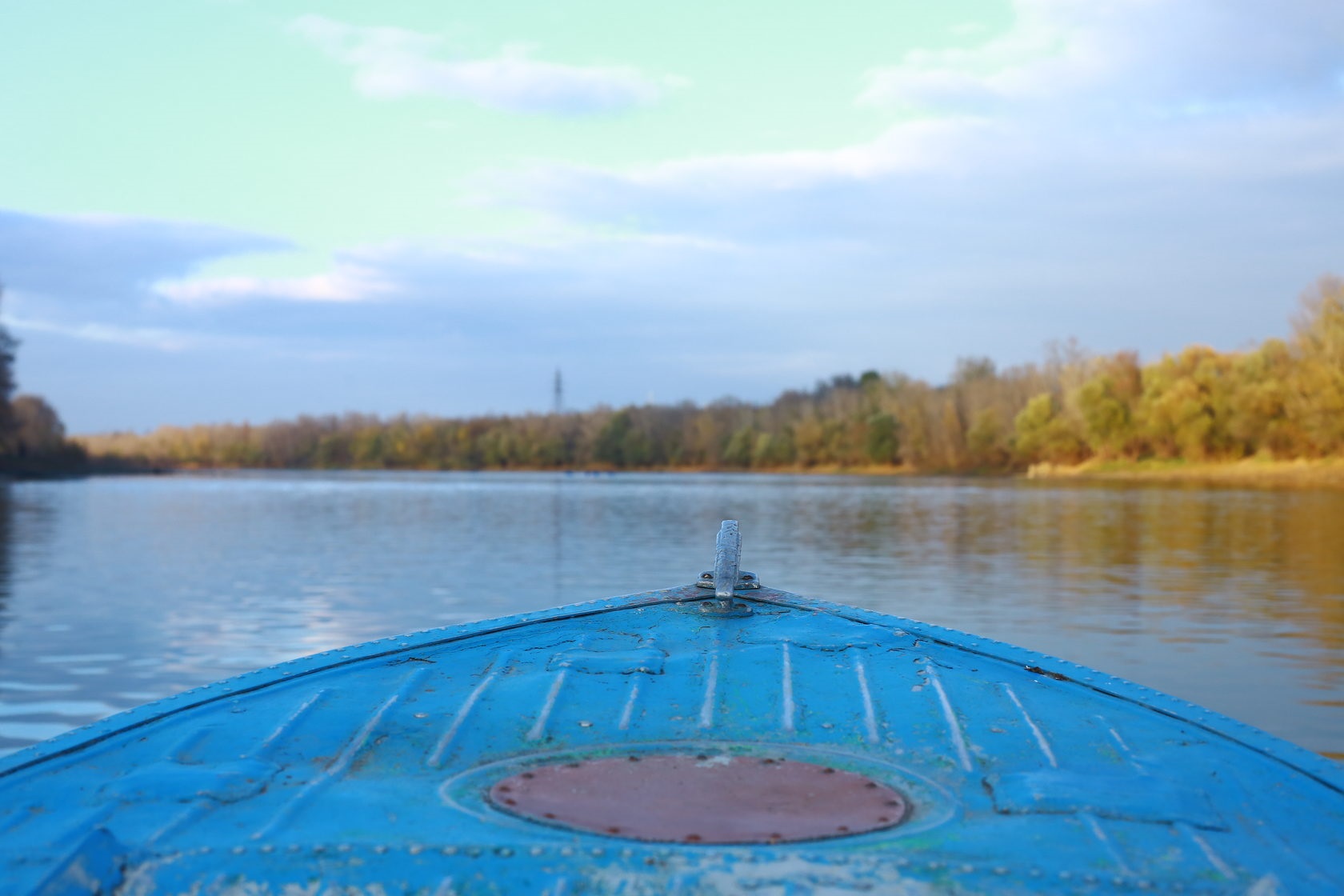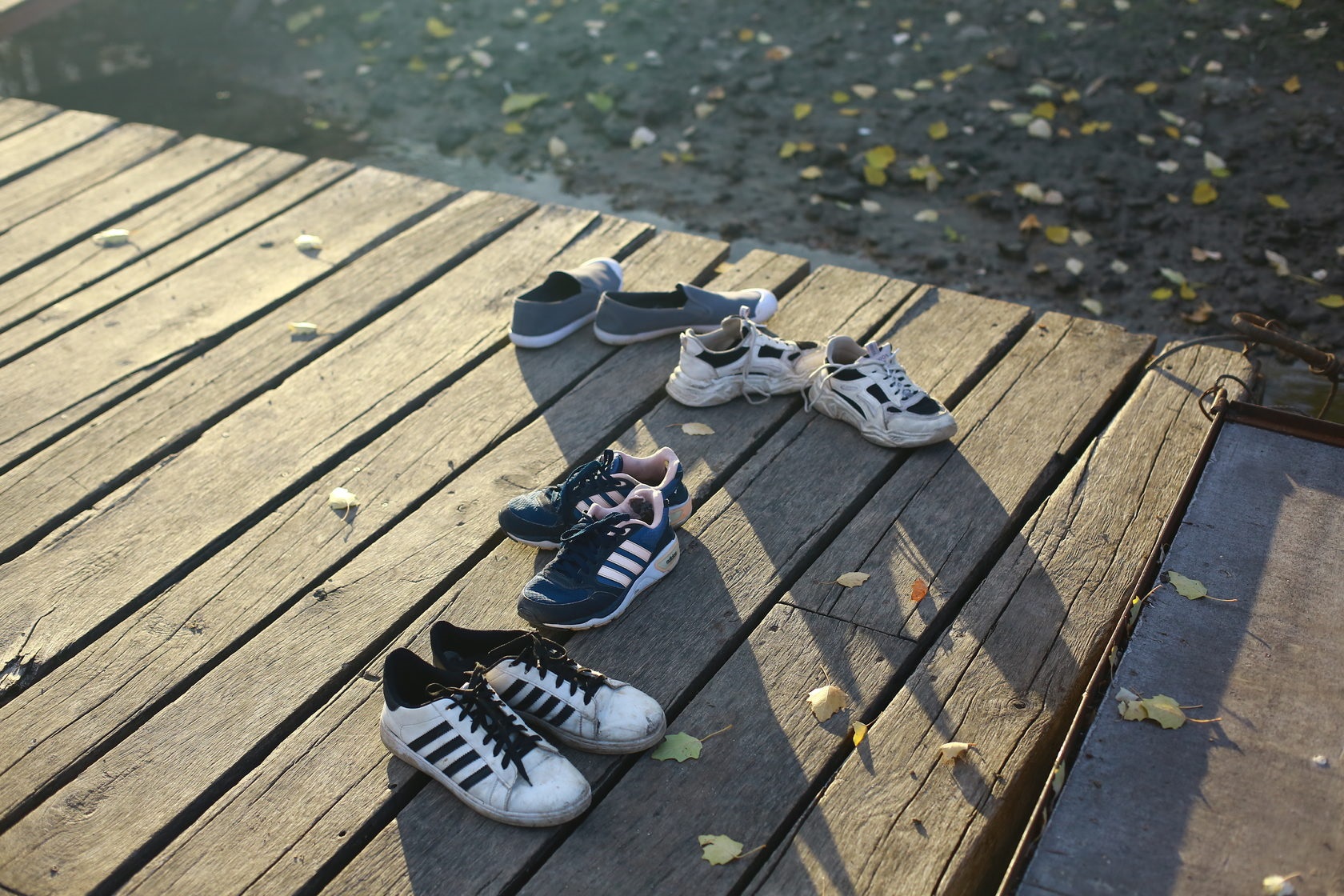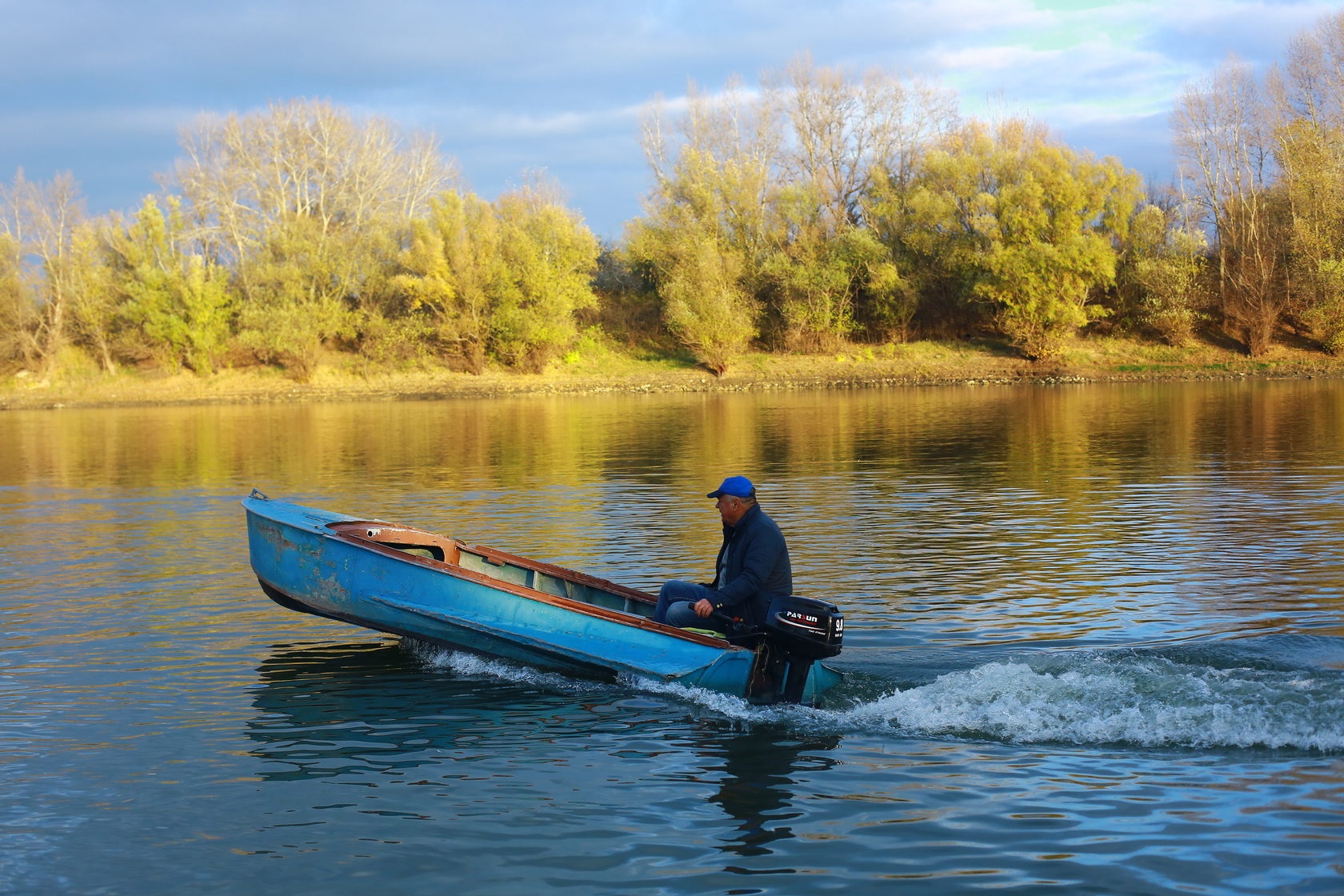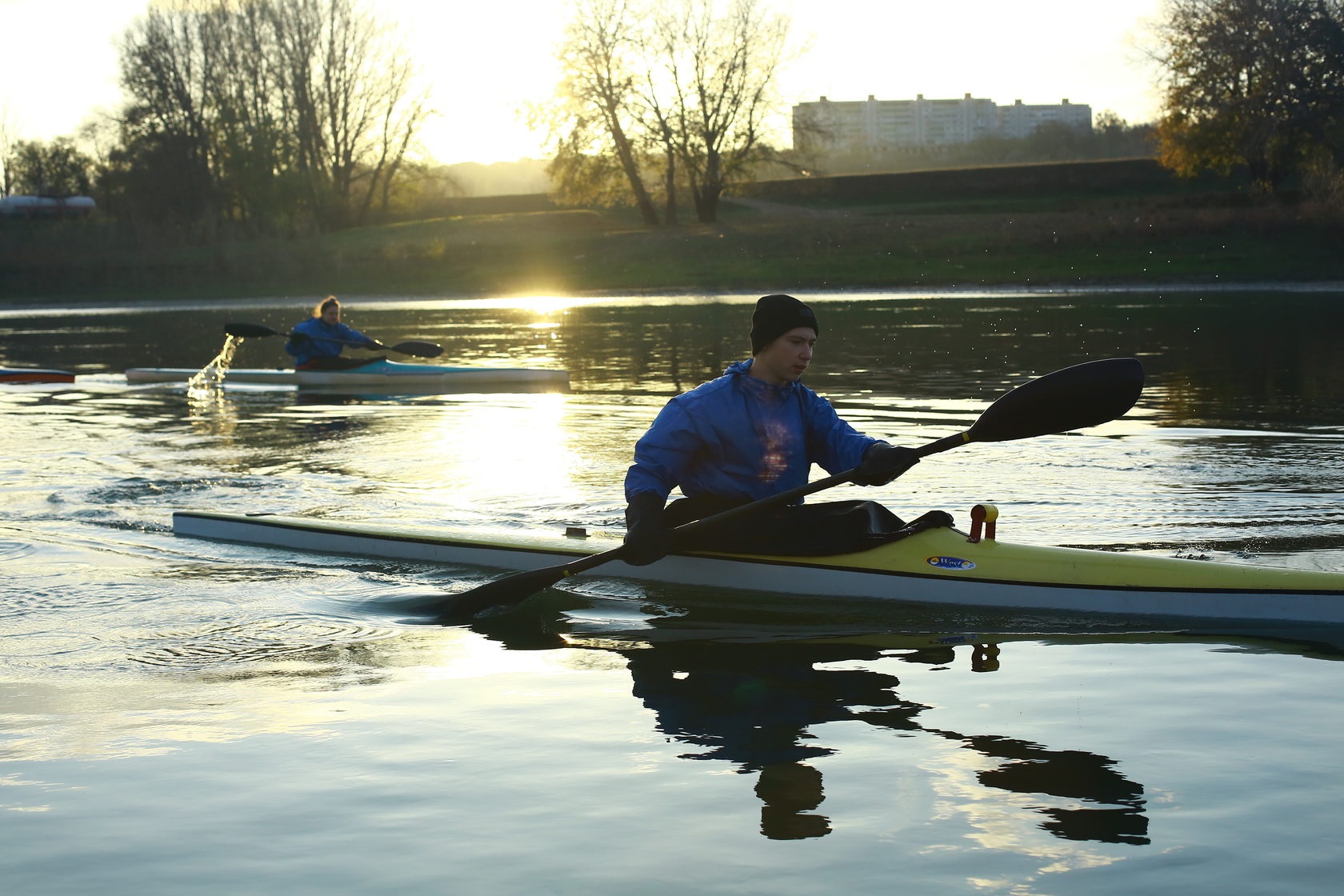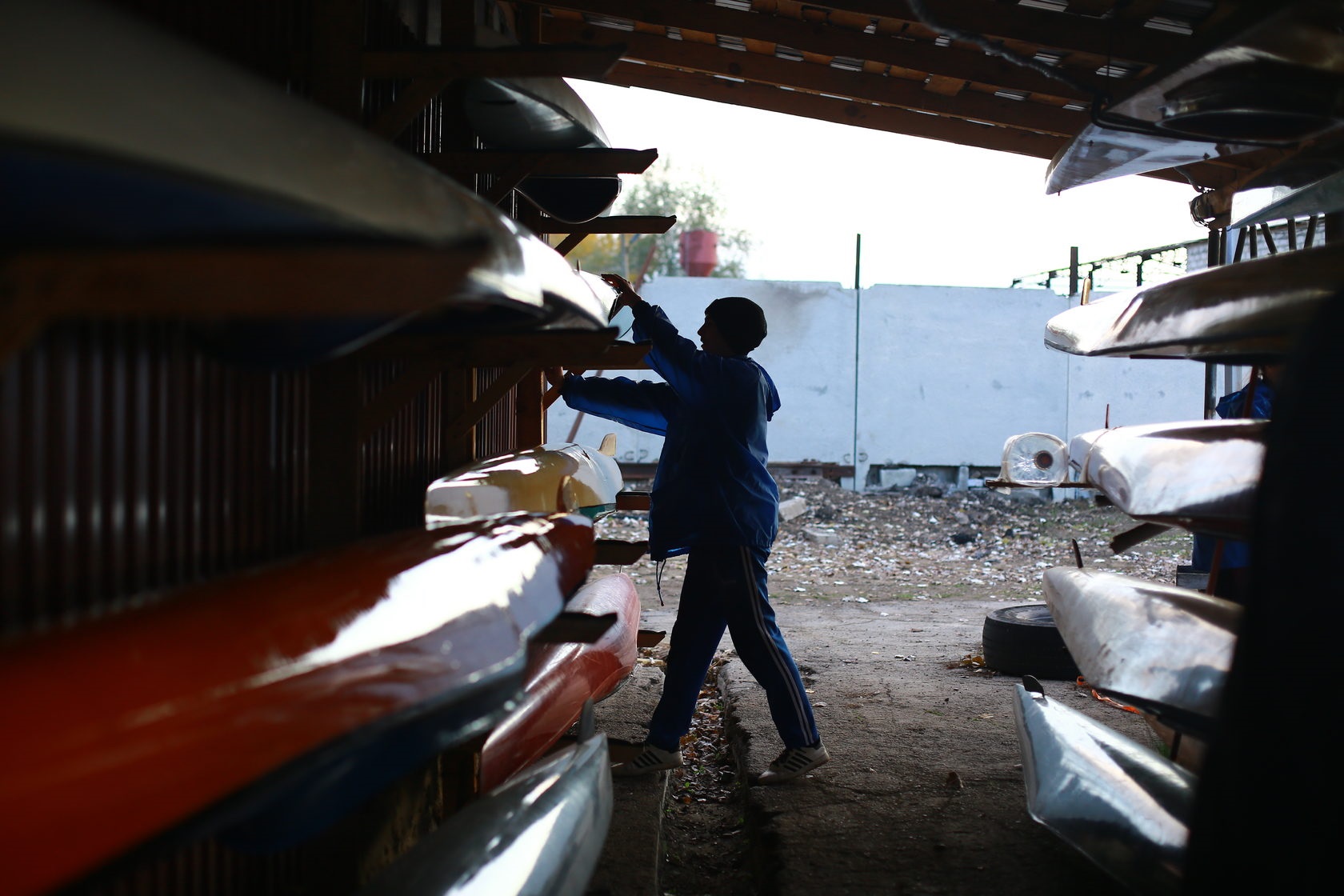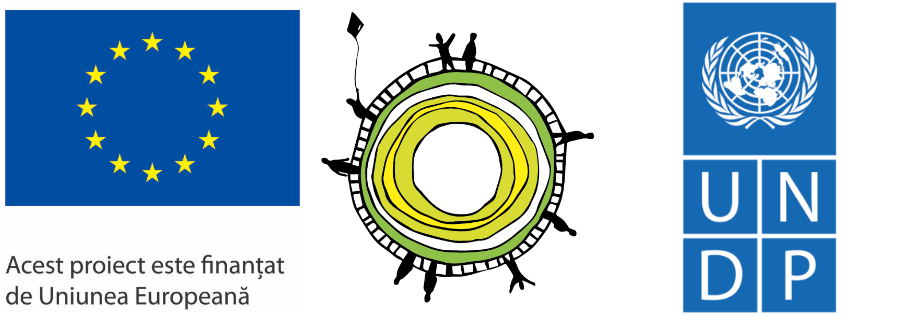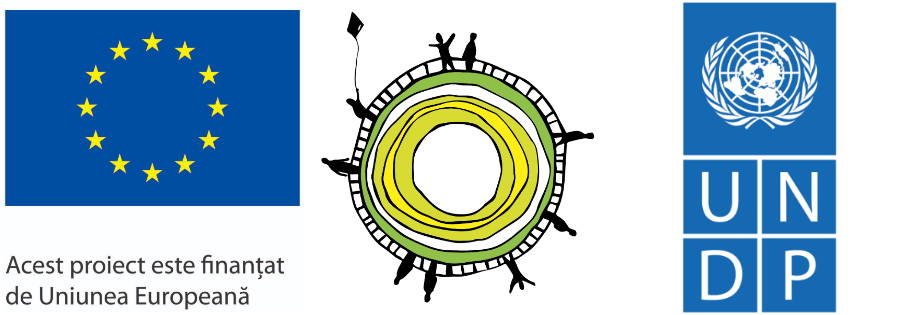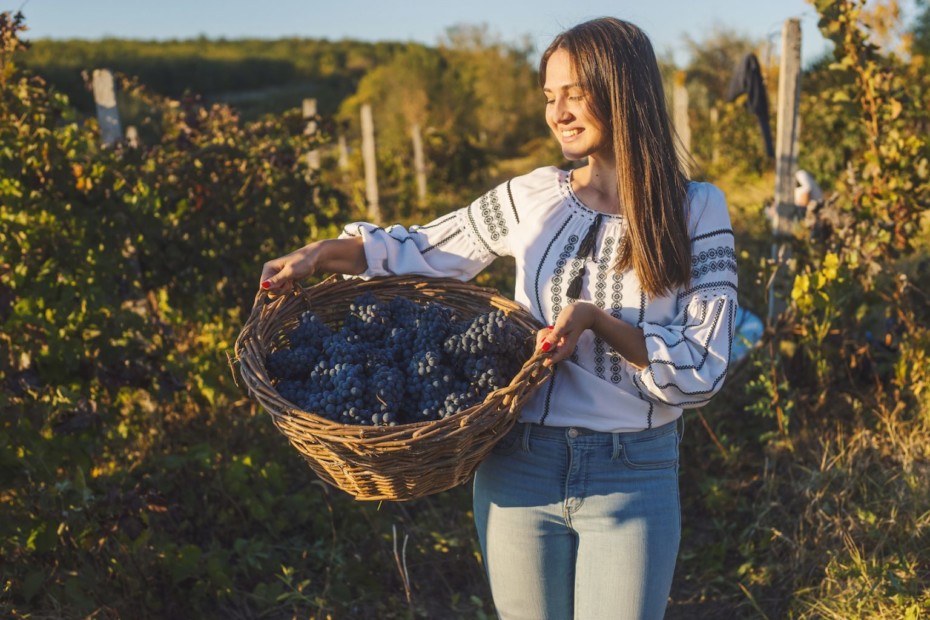
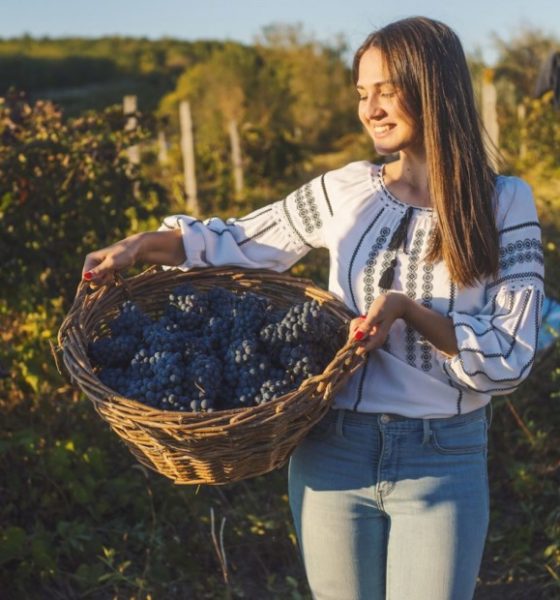
Culture
5 family-owned wineries and their internationally awarded wines that could offer exclusive experience
People who already had a chance to visit Moldova surely visited at least one of the most famous wineries of the country: Cricova, Purcari, Chateau Vartely, Mileștii Mici, Asconi or maybe Castel Mimi. Beside big and popular wineries, which produce a wide range of wines for import and export, there are also small, family-owned vineyards attached to wisely engineered wineries that deliver unique products, beloved and awarded internationally, and that are even more interesting to be discovered. So prepare a notebook and take some notes.
Fautor
The Fautor winery, belonging to Lipcan family, was founded at the end of the 20th century. The winemaker’s talent, advanced technologies, the unique area where the vineyards grow and the variety of produced wines are the main ingredients of the Fautor success story.
Both the winery and the plantations are located in the Tigheci microzone, being part of the Valul lui Traian area – a UNESCO protected wine-growing area in Southern Moldova where protected geographical indication (PGI) wines are obtained. The experts claim that this region’s environment is similar to those of the famous wine regions Bordeaux (France) and Piedmont (Italy).
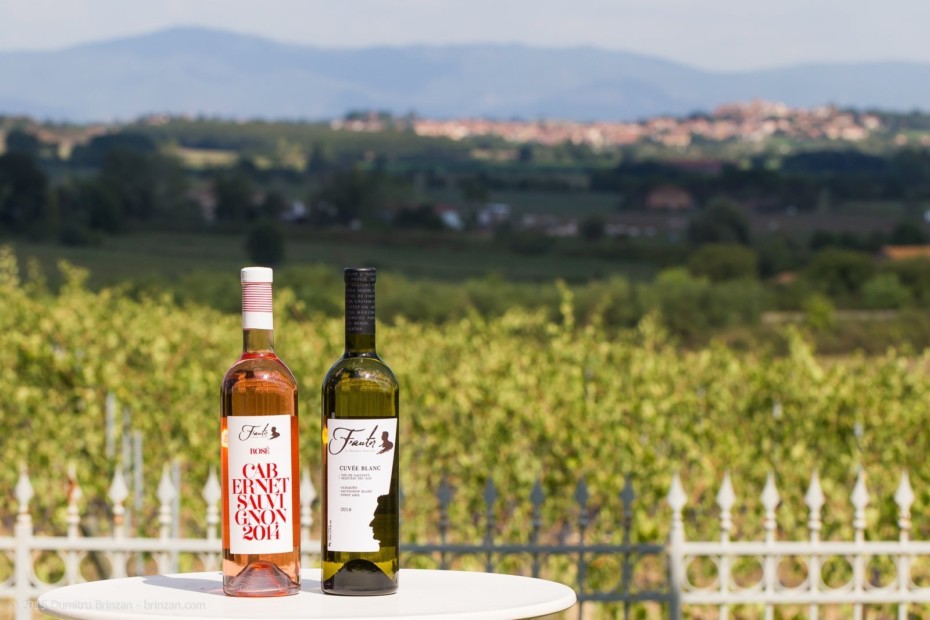
Photo credit: Dumitru Brinzan
Fautor is one of the most awarded Moldovan wineries in the last years, having a unique portfolio of rare varieties and world exclusive blends, as the official page of the company states. The wine catalogue of Fautor includes a beautiful selection of wines, including their most internationally awarded varieties: Negre – a blend of Feteasca Neagra and Rara Neagra (red dry wine), Fumé Blanc – made of Sauvignion Blanc grape variety (white dry wine) and Illustro – a blend of Cabernet Sauvignion and Merlot (red dry wine).
Vinaria din Vale
Vinaria din Vale is one more family-owned winery (Davidești family) with deep roots in tradition and a great passion for excellence. It is another winery located in the Valul lui Traian area, the vineyards there having a favorable climate and fertile soils that ensure the personality and quality of grapes.
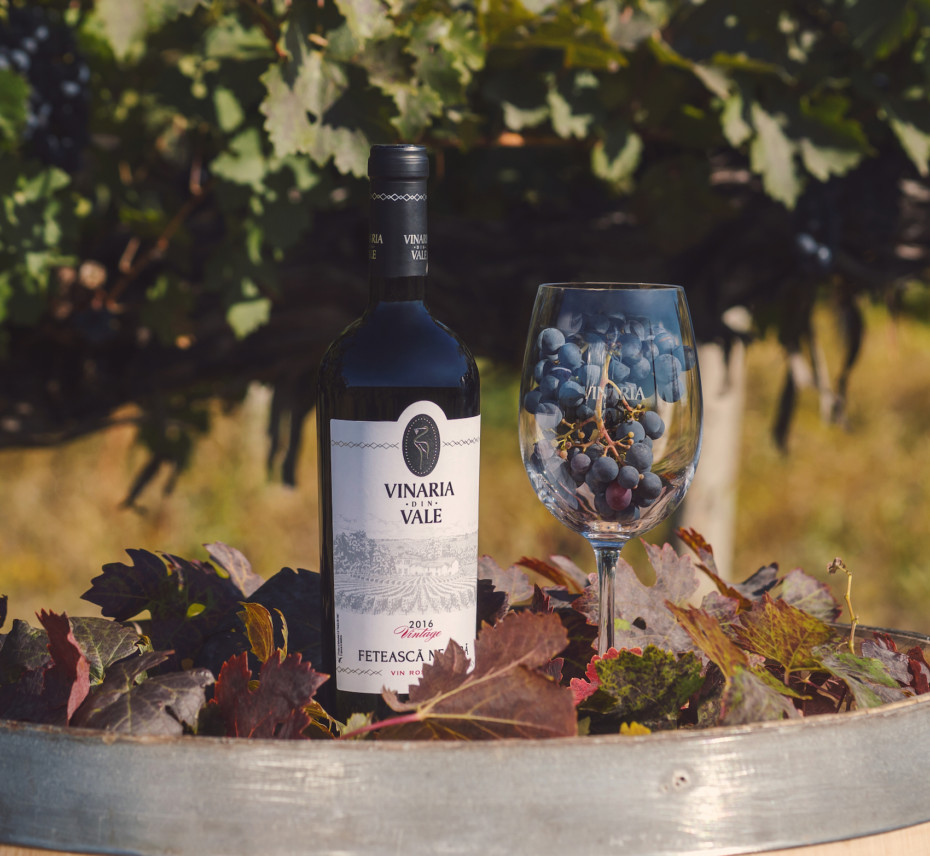
source: vinaria.md
Another important detail in their wine production is the maturation in oak barrels brought from France that offer soft taste and stunning aromas. The most appreciated wines of Vinaria din Vale are Traminer, Feteasca Neagră (red dry wine), Rosé and their blend of Chardonnay and Fetească Albă (white dry wine).
Carpe Diem
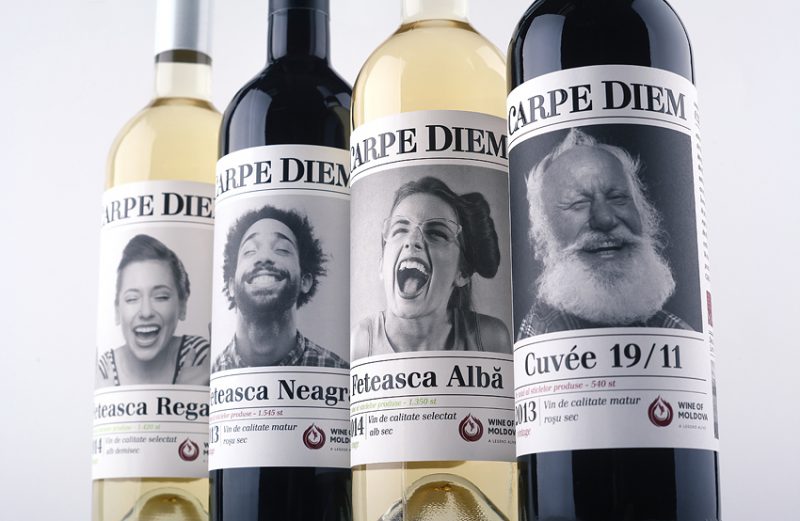
source: carpediem.md
Gitana
Gitana winery is special because of its elegant wines that managed to preserve the personal identity of each variety of grapes in their flavor and structure, without much human intervention. Thanks to the winery owners’ (Dulgher family) know-how and the specific of the region (Valul lui Traian) where the vineyards are located, Gitana was internationally recognised and won over time many awards in the specialised competitions. The most honoured with awards wines from Gitana are their Cabernet Sauvignon and Feteasca Regală varieties.
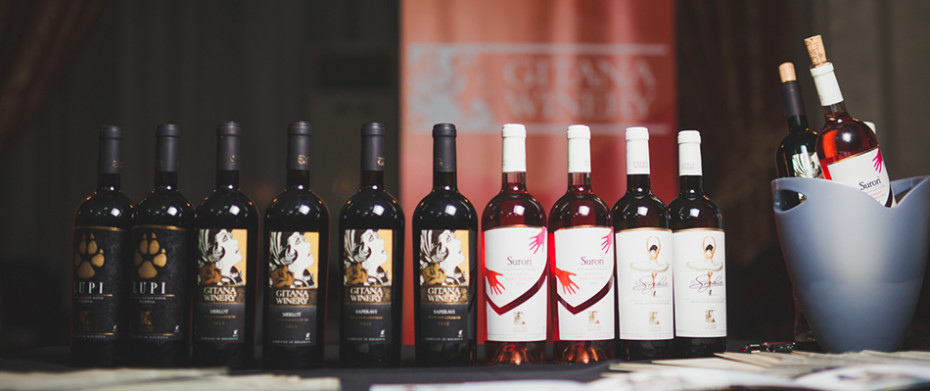
source: gitana.md
This winery marked a milestone in the rebirth of Moldovan wines when the Dulgher family purchased the “Tiganca” (tr. gipsy) wine factory in a deplorable state in 1999 and gave it a new life.
Novak
The family-owned winery Novak is a new look at the traditional wine-making, combining traditions and innovative technologies. As the majority of the described wineries, it is also located in the Valul lui Traian microzone.
The story of Novak winemaking dates back to the late 19th, being started by Emanuel Novak. Afterwards, the knowledge was transferred to his successors. The old-fashioned traditions served as a base for the today’s winery. At Novak winery both classic varieties (Merlot, Cabernet Sauvignon, Chardonnay, Malbec), traditional varieties (Rara Neagra, Feteasca Regala) and even some forgotten varieties of grapes (Alb de Onitcani, Floricica, Kaz Aya) are used in production. In such a way, in addition to the already well-known varieties of wines and blends, the Novak winery placed emphasis on the revival of the original Moldovan varieties, some of which, until recently, were forgotten or considered lost. The Alb de Onițcani wine variety, for example, won the gold medal at Mundus Vini 2018 and other international contests.
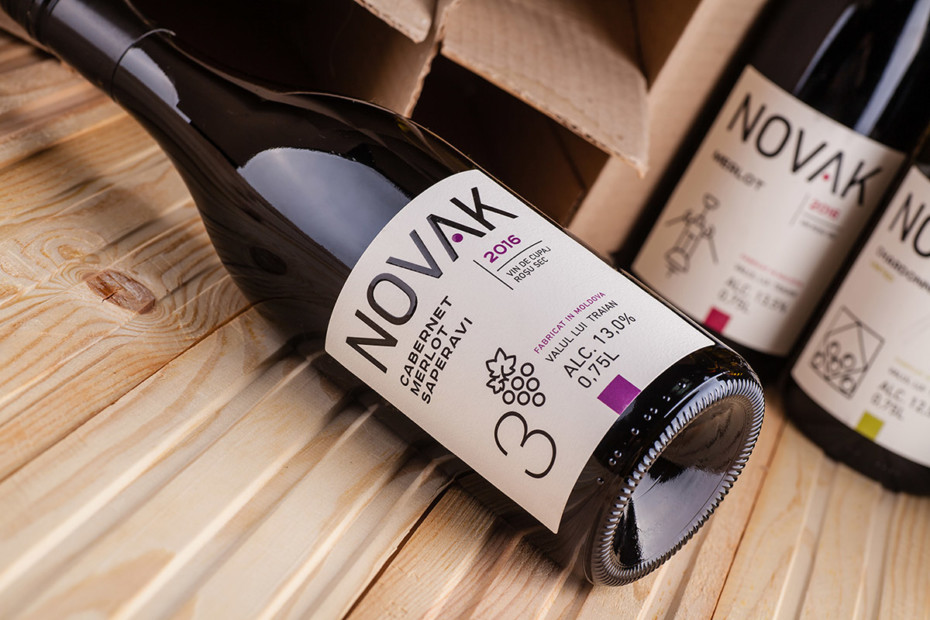
source: novak.md
There are even more family-owned, worth mentioning wineries in Moldova, such as Gogu winery, Atu winery, Et cetera, Equinox, Kara Gani. They produce rich-flavoured wines and offer an unforgettable experience to their customers. Therefore, more is yet to come.
Photo: vinaria.md
Society
“They are not needy, but they need help”. How Moldovan volunteers try to create a safe environment for the Ukrainian refugees

At the Government’s ground floor, the phones ring constantly, the laptop screens never reach standby. In one corner of the room there is a logistics planning meeting, someone has a call on Zoom with partners and donors, someone else finally managed to take a cookie and make some coffee. Everyone is exhausted and have sleepy red eyes, but the volunteers still have a lot of energy and dedication to help in creating a safe place for the Ukrainian refugees.
“It’s like a continuous bustle just so you won’t read the news. You get home sometimes and you don’t have time for news, and that somehow helps. It’s a kind of solidarity and mutual support,” says Vlada Ciobanu, volunteer responsible for communication and fundraising.
The volunteers group was formed from the very first day of war. A Facebook page was created, where all types of messages immediately started to flow: “I offer accommodation”, “I want to help”, “I want to get involved”, “Where can I bring the products?”, “I have a car and I can go to the customs”. Soon, the authorities also started asking for volunteers’ support. Now they all work together, coordinate activities and try to find solutions to the most difficult problems.
Is accommodation needed for 10, 200 or 800 people? Do you need transportation to the customs? Does anyone want to deliver 3 tons of apples and does not know where? Do you need medicine or mobile toilets? All these questions require prompt answers and actions. Blankets, sheets, diapers, hygiene products, food, clothes – people bring everything, and someone needs to quickly find ways of delivering them to those who need them.
Sometimes this collaboration is difficult, involves a lot of bureaucracy, and it can be difficult to get answers on time. “Republic of Moldova has never faced such a large influx of refugees and, probably because nobody thought this could happen, a mechanism of this kind of crisis has not been developed. Due to the absence of such a mechanism that the state should have created, we, the volunteers, intervened and tried to help in a practical way for the spontaneous and on the sport solutions of the problems,” mentions Ecaterina Luțișina, volunteer responsible for the refugees’ accommodation.
Ana Maria Popa, one of the founders of the group “Help Ukrainians in Moldova/SOS Українці Молдовa” says that the toughest thing is to find time and have a clear mind in managing different procedures, although things still happen somehow naturally. Everyone is ready to intervene and help, to take on more responsibilities and to act immediately when needed. The biggest challenges arise when it is necessary to accommodate large families, people with special needs, for which alternative solutions must be identified.
Goods and donations
The volunteers try to cope with the high flow of requests for both accommodation and products of all kinds. “It came to me as a shock and a panic when I found out that both mothers who are now in Ukraine, as well as those who found refuge in our country are losing their milk because of stress. We are trying to fill an enormous need for milk powder, for which the demand is high and the stocks are decreasing”, says Steliana, the volunteer responsible for the distribution of goods from the donation centers.
Several centers have been set up to collect donations in all regions of Chisinau, and volunteers are redirecting the goods to where the refugees are. A system for processing and monitoring donations has already been established, while the volunteer drivers take over the order only according to a unique code.
Volunteers from the collection centers also do the inventory – the donated goods and the distributed goods. The rest is transported to Vatra deposit, from where it is distributed to the placement centers where more than 50 refugees are housed.
When they want to donate goods, but they don’t know what would be needed, people are urged to put themselves in the position of refugees and ask themselves what would they need most if they wake up overnight and have to hurriedly pack their bags and run away. Steliana wants to emphasise that “these people are not needy, but these people need help. They did not choose to end up in this situation.”
Furthermore, the volunteer Cristina Sîrbu seeks to identify producers and negotiate prices for products needed by refugees, thus mediating the procurement process for NGOs with which she collaborates, such as Caritas, World Children’s Fund, Polish Solidarity Fund, Lifting hands, Peace Corps and others.
One of the challenges she is facing now is the identifying a mattress manufacturer in the West, because the Moldovan mattress manufacturer that has been helping so far no longer has polyurethane, a raw material usually imported from Russia and Ukraine.
Cristina also needs to find solutions for the needs of the volunteer groups – phones, laptops, gsm connection and internet for a good carrying out of activities.
Hate messages
The most difficult thing for the communication team is to manage the hate messages on the social networks, which started to appear more often. “Even if there is some sort of dissatisfaction from the Ukrainian refugees and those who offer help, we live now in a very diverse society, there are different kind of people, and we act very differently under stress,” said Vlada Ciobanu.
Translation by Cătălina Bîrsanu
Culture
The man raising children on Nistru river

Culture
The village of the first astronomer in the Republic of Moldova









